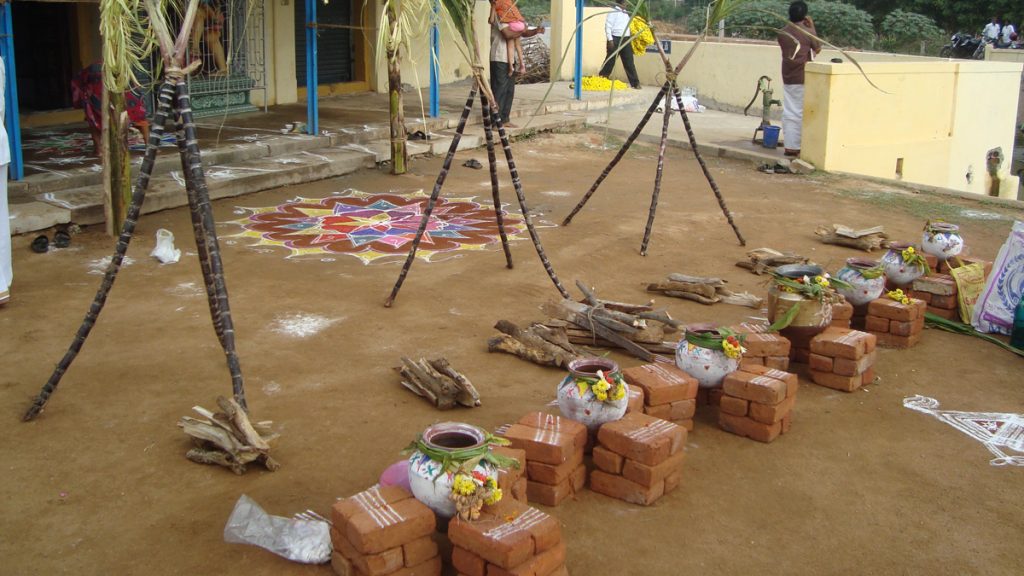Pongal – Thai Tirunaal, celebrated in Tamil month ‘Thai’, the harvest season
Who celebrates Pongal?
Tamil people celebrate the harvest festival as the Pongal during the Tamil month ‘Thai’. Pongal is now being celebrated by different names in different regions in India. It is one of the important festivals of the Tamil people. North Indians celebrate this harvest season as ‘Lohri’ in commemoration of harvesting winter crops, whereas Assamese celebrate this as ‘Bihu’ and people in Karnataka and Andhra / Telangana celebrate Pongal as ‘Makara Sankranti’.
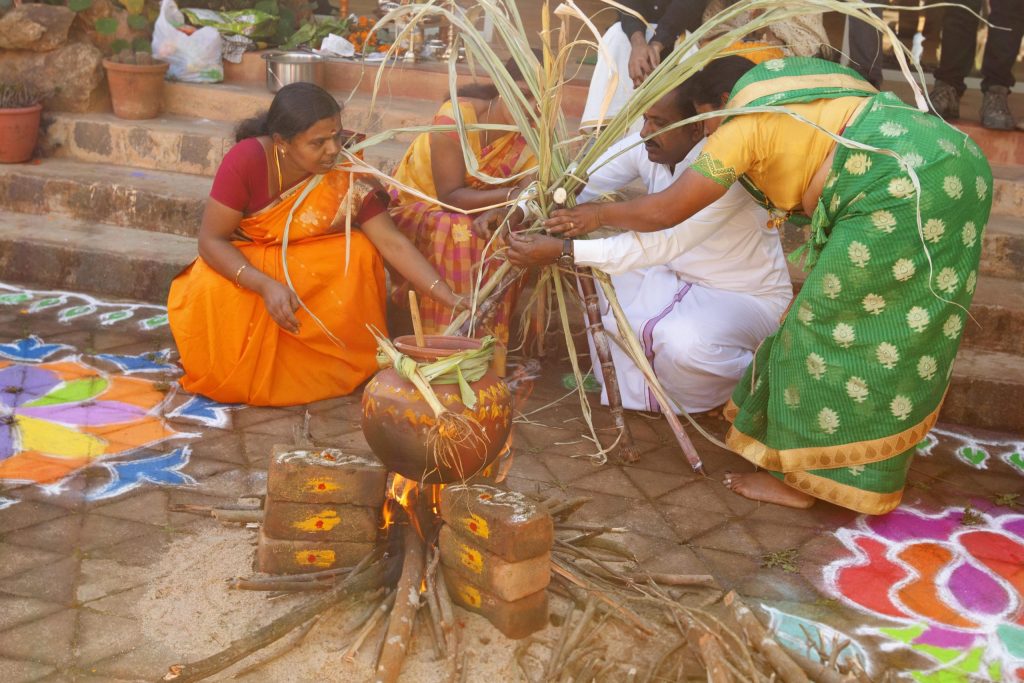
Why is the Pongal festival special for the Tamils?
In South India, Pongal is celebrated during the harvest season (Tamil month- Thai) for 4 full days, as part of thanksgiving. Thanking & worshipping nature for a bountiful harvest and honouring the sun by offering ‘Pongal’- rice cooked in milk with lentils and jaggery, thanking the cattle – farm animals that helped in the harvest. So Pongal is a harvest festival celebrated for 4 full days, from the last day of the Tamil month Margazhi, throughout South India, wherein all families get together to share their joy and harvest of that year with others.
What do people do during the Boghi festival:
The first day of the 4-day festival commences with the ‘Boghi’ festival. On the night before the Pongal festival, in the early days, farmers used to burn agricultural waste and firewood to keep them warm during the last lap of winter (Tamil month Margazhi) but over time, our people started to burn worn-out tyres, plastics, old clothes etc., But this practice was banned by the government due to serious air-pollution that spoilt the environment. Few people in rural areas celebrate Boghi by cleaning up their houses, getting rid of old things (old thoughts), painting their houses newly and getting prepared for the harvest festival.
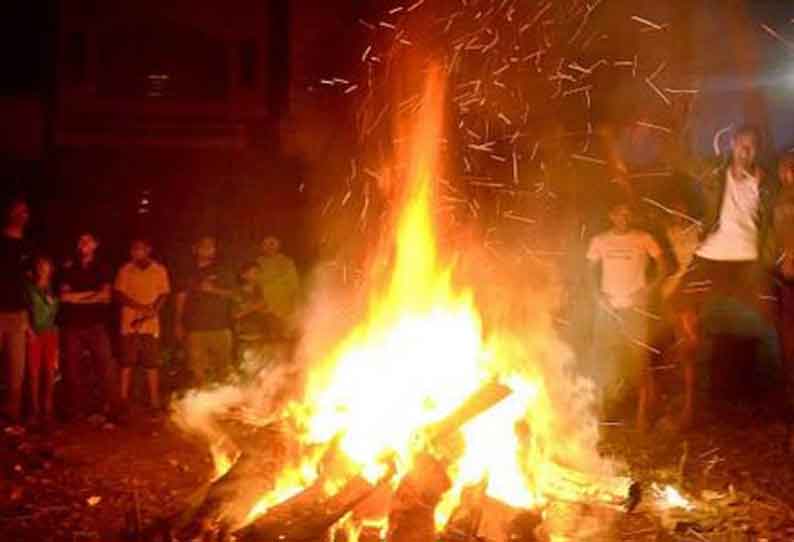
How the Pongal festival is celebrated by Tamils:
On the 3rd day festival, which is Pongal day, people draw colourful Kolam (Rangoli) on the floor as part of decoration using rice flour or chalk powder. Traditionally, Pongal is cooked using firewood in front of the house. While cooking Pongal, milk is allowed to spill over the new pot as it is considered to denote prosperity for the family and is also a symbol of abundance. In villages, even today, when milk overflows, the whole family gather and shouts with excitement – ‘Pongalo Pongal’, ‘Pongalo Pongal’ along with a unique sound (Kulavai) made by women when the Pongal pot overflows. This forms an important part of the tradition followed in South India during the Pongal festival.
Parents who marry off their daughters visit their in-laws’ house to give ‘Pongal seer’ (Seer means gifts) to their daughters, as part of the custom. The gift includes new clothes for the bride and groom and all items required to celebrate Pongal, including new Pongal pots, newly bought rice, lentils, jaggery and sugarcane. The Bride also gets money from her family, especially from her brother, as a gift for Pongal. It is every brother’s responsibility to offer Pongal money (any amount of their choice) to their sisters during the Pongal festival to wish prosperity in abundance. This has been a traditional practice even today in Tamil Nadu.
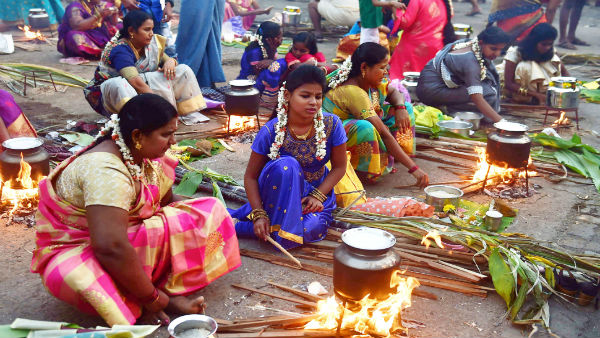
Once the Pongal is ready, first it is offered to God with prayers and then they share it with friends and relatives. Later, Pongal is served to the people present in the house for the ceremony. Some people also prepare savouries and other sweets such as Vada, murukku and payasam and visit each other and exchange greetings.
What is Maattu Pongal?
The next day of Pongal is Maattu Pongal, an exclusive day to offer thanks to the farm animals that have helped the farmers in the harvest. Jallikkattu is a bull-taming sport that takes place on Maattu Pongal day involving bulls and is celebrated by young men as part of the Pongal festival. Bulls are washed, their horns painted and decorated with multicolour beads, colourful garlands and tinkling bells are tied around their necks, Kumkum and turmeric paste are put on their foreheads and anklets adorn their legs. People offer prayers and worship them with gratitude and feed them.
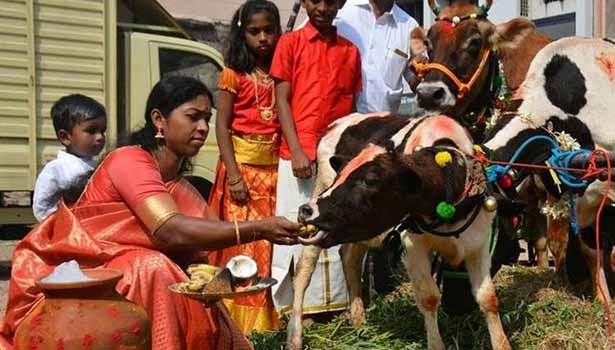
Some people decorate the horns of cattle with gold or other metallic covers. In some places, Jallikattu, or taming the wild bull contest, becomes the main event of the day and this is mostly seen in the villages.
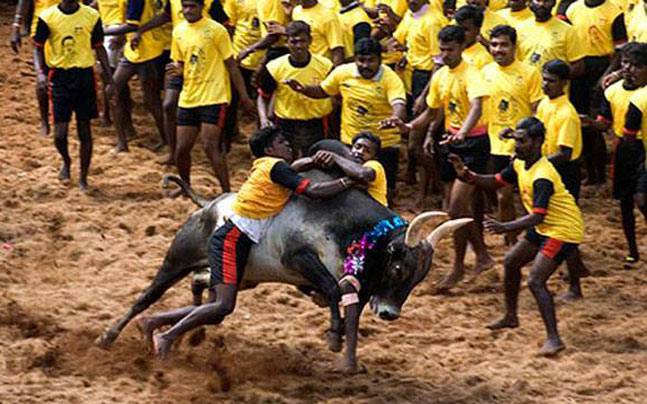
Pongal day is also a day to thank relatives and friends for their support in the harvest. Although it started as a farmers’ festival, today it has become a national festival for all Tamils, irrespective of their origins, caste or even religion.

